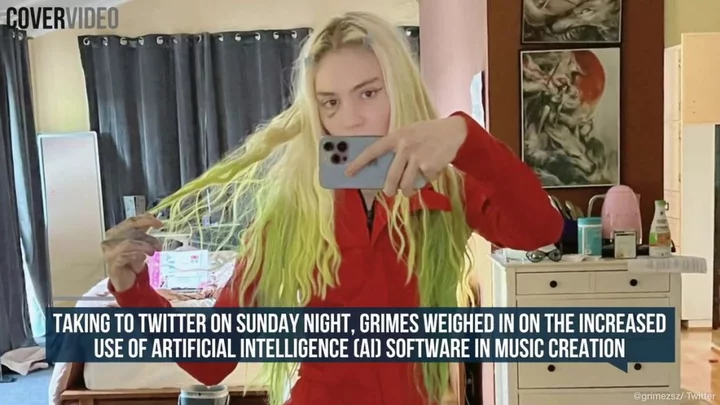
AI in music: The top artists are are for and against the technology
With the rise of AI, we've all seen how powerful this new technology can be particularly when it comes to music. As a result, people have been using AI to perfectly replicate the singing voices of different artists such as Drake, Ariana Grande, Billie Eilish, Taylor Swift and Harry Styles in order to make AI covers of different songs. For example, there is a viral AI cover of Harry Styles singing in a duet with Taylor Swift on her track Style which fans have been going crazy about. While AI can also be used to create deep fakes of celebrities too - where the celeb's face is digitally imposed on someone else's body which is often used to spread misinformation or for malicious intent. But what do artists think about this issue? Here are the celebrities who have spoken out so far on the topic of AI: Drake An AI song called "Heart on My Sleeve" that used Drake's and the Weeknd's voices went viral before being taken down by music streaming services. While Drake himself hasn't commented on all the AI songs that have been created, he did express his disapproval of the practice after the rapper responded to an AI-generated cover of him rapping Ice Spice’s “Munch”, writing: “This is the final straw AI.” Grimes Grimes has expressed enthusiasm towards the new AI-generated songs - and has told her fans they can use her voice to create their own tracks. Taking to Twitter, she shared a New York Times article about the viral AI-generated song using Drake and The Weeknd's voice. She wrote: "I'll split 50 per cent royalties on any successful AI-generated song that uses my voice. Same deal as I would with any artist I collab with. Feel free to use my voice without penalty. I have no label and no legal bindings." "I think it's cool to be fused w a machine and I like the idea of open-sourcing all art and killing copyright," she added. Though, later she did add a clarification on the platform as to what circumstances would cause her to get certain AI songs taken down for copyright - where "rly rly toxic lyrics," are used with her voice. "Ok hate this part but we may do copyright takedowns ONLY for rly rly toxic lyrics w grimes voice: imo you'd rly have to push it for me to wanna take smthn down but I guess plz don't be *the worst*. as in, try not to exit the current Overton window of lyrical content w regards to sex/violence. Like no baby murder songs plz," she wrote. "I think I'm Streisand effecting this now but I don't wanna have to issue a takedown and be a hypocrite later. ***That's the only rule." Rly don't like to do a rule but don't wanna be responsible for a Nazi anthem unless it's somehow in jest a la producers I guess "- wud prefer avoiding political stuff but if it's a small meme with ur friends we prob won't penalize that. Probably just if smthn is viral and anti abortion or smthn like that. Grimes added: "Rly rly don't like adding rules so I apologize but this is the only thing." Most recently, the singer and producer has shared a guide on how to do this, and shared the link in a tweet: "HOW TO MAKE MUSIC FEAT GrimesAI - we can distribute it for you and you can earn royalties from your work." Billie Eilish During an appearance on The Late, Late Show with James Corden back in May this year, Billie Eilish shared her thoughts on AI. "I feel like my approach is not as optimistic, I'm a little bit scared of it," she admitted. "I'm a little scared of what someone could create of me doing something with it." Eilish added: "Scary, scary to me, it just looks so real," as she went on to note how it's "One of the most impressive things I've encountered in my life." The singer's comments come after deepfake porn' of singer Eilish was promoted on people's TikTok in December last year. Sign up to our free Indy100 weekly newsletter Have your say in our news democracy. Click the upvote icon at the top of the page to help raise this article through the indy100 rankings.
2023-08-26 13:16

Simulation discovers what personality traits you would need to go to Mars
If the thought of jetting off to Mars to live doesn’t scare you enough, imagine what it would be like going with people whose personalities you cannot stand. To avoid that happening, scientists have come up with a simulation that can determine the right and, importantly, wrong, personality types to send up to colonize Mars. 28 different simulations of colonies on Mars were run as part of the study to establish which type of people stood the best chance of settlement and survival. While the study was published on pre-print server arXiv, it had not yet been peer-reviewed. The study worked on the assumption that there would already be some kind of infrastructure in place, including power, food, air and water being locally produced and available. As part of the model, there would also be regular supply deliveries from Earth. Those behind the simulation gave each agent their own attributes, skills and personalities and let the simulation run as they interacted, socialised and problem-solved together. In the paper, the researchers explained: “Each agent is granted skills associated with their civilian and military occupational specialities consistent with NASA’s Human Factors and Behavioral Performance Element research.” Different personality types included: “Agreeables” – they score low on levels of competitiveness and aggression. “Neurotics” – these people are highly aggressive, competitive, and are much less able to handle routine change or boredom. “Reactives” – they tend to have a “competitive interpersonal orientation”. “Socials” – people who are extroverted and require a lot of social interaction. As for the groups themselves, the numbers within each simulation differed with the lowest amount being 22 individuals. The study found that the presence of neurotics made the team have a worse chance of survival and that these people in particular “suffered during life on the colony”. The researchers: “Martians with the neurotic psychology and a high coping capacity benefit the least from interaction with other Martians, and are penalized the most if they have a low coping capacity. “Our results suggest that this effect is a driver of the Martian population decline, and once minimized or removed, can produce a stable settlement.” A lot to process there if you identify as neurotic. Sign up to our free Indy100 weekly newsletter Have your say in our news democracy. Click the upvote icon at the top of the page to help raise this article through the indy100 rankings.
2023-08-25 23:56

A new 'Antarctica' accent has been discovered by scientists
Antarctica might be the only continent on Earth with no natural human habitation, but it’s emerged that an “Antarctica accent” is very much a thing. Despite having no locals, thousands of scientists have made up an ever-changing population in research stations over the years. The continent is so isolated and the level of interaction between researchers is so intense, that a common accent is beginning to emerge there despite people coming from different parts of the world. At its busiest points in the year during the summer, Antarctica is home to around 5,000 people. Only around 1,000 people live there during the winter months. The idea of accents changing due to human interaction on Antarctica is no different to the phenomenon seen throughout history at a glacial pace. However, given the very specific sample size, it’s an opportunity for scientists to study it at a much quicker rate and on a much smaller scale. Experts at the Ludwig Maximilian University of Munich published a study in 2019 which focused on the change in accents observed in 11 people who took part in the British Antarctic Survey. @human.1011 There’s an Antarctic Accent! #language #linguistics #english #antarctica Of the 11 who were studied, eight came from England, one from the US, one from Germany and one from Iceland. Their voices were recorded every six weeks, and the team found that over time they developed longer vowel sounds. There was a physical change too, with participants pronouncing the “ou” sound in the front of their mouths rather than the back of their throats. Speaking to IFL Science, Jonathan Harrington, study author and Professor of Phonetics and Speech Processing at the Ludwig-Maximilians University of Munich said: "The Antarctic accent is not really perceptible as such – it would take much longer for it to become so – but it is acoustically measurable. "It's mostly an amalgamation of some aspects of the spoken accents of the winterers before they went to Antarctica, together with an innovation. It's far more embryonic [than conventional English accents] given that it had only a short time to develop and also, of course, because it's only distributed across a small group of speakers.” Sign up for our free Indy100 weekly newsletter Have your say in our news democracy. Click the upvote icon at the top of the page to help raise this article through the indy100 rankings.
2023-08-24 20:45
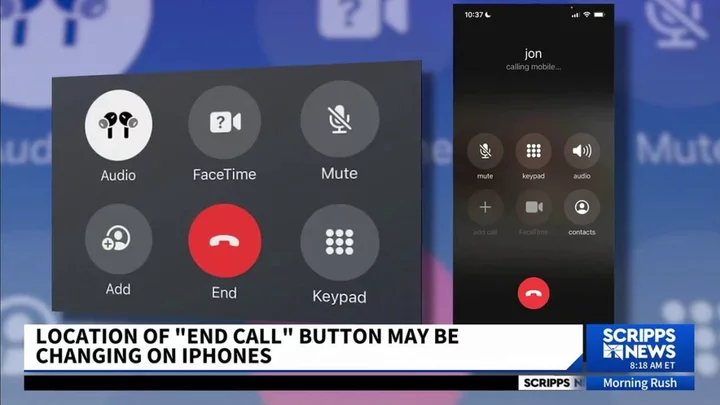
Apple issues danger warning to iPhone users
The Apple iPhone is one of the most popular mobile devices in the world, but the company has issued a new danger warning to users that could help save lives. Popular among those particularly in the West, iPhones are prevalent in most people’s everyday lives, ever since the first one was released in June 2007. However, Apple has issued a stark warning for those who leave them charging overnight, highlighting a risk of fire, electrocution and injury. The warning by Apple comes under its updated user guide under the article titled, “Important safety information for iPhone” in which it is warned that charging phones over long periods poses a risk. It read: “Use common sense to avoid situations where your skin is in contact with a device, its power adapter, or a wireless charger when it’s operating or connected to a power source for long periods of time. “For example, don’t sleep on a device, power adapter, or wireless charger, or place them under a blanket, pillow, or your body, when it’s connected to a power source. “Keep your iPhone, the power adapter, and any wireless charger in a well-ventilated area when in use or charging. Take special care if you have a physical condition that affects your ability to detect heat against the body.” The company confirmed consumers can use “‘Made for iPhone’ or other third-party cables” that are compliant with relevant safety regulations. But, it added: “Other adapters may not meet applicable safety standards, and charging with such adapters could pose a risk of death or injury.” Sign up to our free Indy100 weekly newsletter Have your say in our news democracy. Click the upvote icon at the top of the page to help raise this article through the indy100 rankings.
2023-08-24 19:54

U.S. says it seeks six-month extension to science agreement with China
WASHINGTON The United States is seeking a six-month extension to a science and technology agreement with China so
2023-08-24 00:16
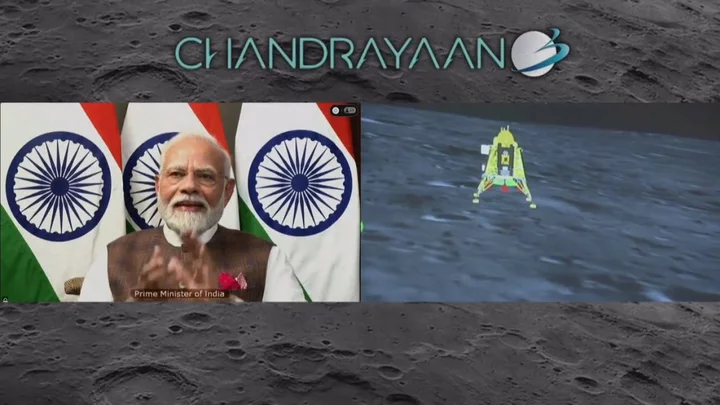
Watch: India becomes first country to make historic moon landing on planet's south pole
This is the moment India made its historic first landing on the moon's south pole, just days after Russia's attempt ended in a crash. India's attempt to land its Chandrayaan-2 mission near the south pole in 2019 was unsuccessful, but the Chandrayaan-3 mission went off without a hitch. The lander, known as Vikram, touched down at 13:34 BST. It's thought no attempts have been successful so far because of its rocky landscape, making it difficult to find somewhere to land safely. Sign up to our new free Indy100 weekly newsletter
2023-08-23 20:53

Toilet invented that is so slippy nothing can leave skid marks
A 3-D-printed toilet has been invented and the surface is so slippery that nothing can leave a mark on it. Cleaning the toilet has to be one of the grimmest household chores, but thanks to new material, you may never have to scrub a loo again. The toilet is the invention of Yike Li at Huazhong University of Science and Technology in Wuhan, China, who, alongside colleagues, invented a toilet whose surface is so slippery that nothing stains it and uses less water for each flush. The team created a prototype of the toilet around 10 times smaller than a real one. It was made using 3D printing technology, where particles of plastic and hydrophobic sand grains were fused together with lasers. The surface of the toilet was lubricated with a type of silicon oil that also penetrated the surface due to the complex structure of the material. The team tested the toilet with a variety of substances, including honey, yoghurt, muddy water as well as synthetic faeces. They found that none of the substances stuck to the toilet bowl. Amazingly, the toilet was just as slippery after having been rubbed with sandpaper over 1,000 times, which Li believes is due to the oil being able to penetrate the material of the toilet. Li believes the technology would be suited for settings in which a toilet gets a lot of use, such as on modes of transport and in public toilets. He explained: “The reduced flushing volume would result in less wasted water during transportation to the processing facilities, thereby saving transportation costs.” But, before that can happen, Li says the technology needs to be adapted for use on a full-sized toilet and also needs to be cheaper to make. You can see the toilet in action below courtesy of New Scientist. Nothing can stick to this 3D-printed slippery toilet youtu.be Sign up to our free Indy100 weekly newsletter Have your say in our news democracy. Click the upvote icon at the top of the page to help raise this article through the indy100 rankings.
2023-08-22 20:23
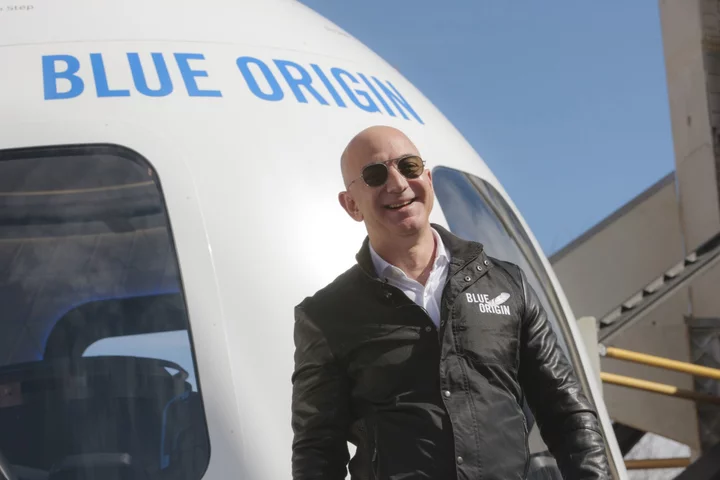
Bezos’ Blue Origin Methane Emissions Were Spotted by the Space Station
Methane, a powerful greenhouse gas, is thought to be responsible for more than a quarter of global warming
2023-08-21 19:16
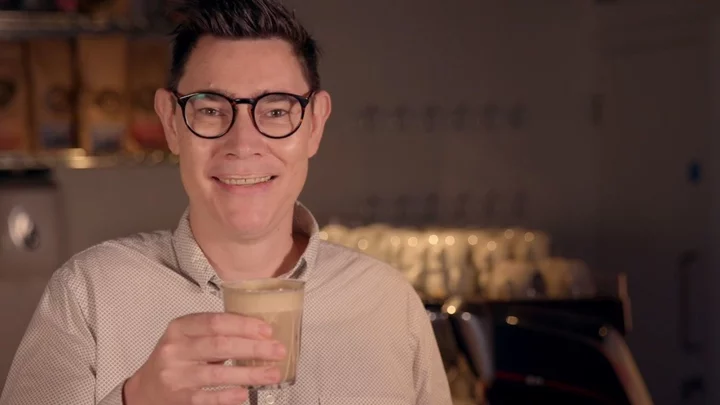
Why you should delay your first coffee of the morning
For a lot of people, coffee is one of the few things that gets them out of bed and out the door in the mornings. But while it’s tempting to whack the kettle on first thing, a health expert has stated that delaying our first coffee of the day could be much more beneficial to our health. Nutritionist Gabi from The Fast 800 urged people to wait at least 90 minutes before getting their first coffee hit [via the Mirror]. Gabi claims that we can all boost energy levels by doing so. In fact, eating on an empty stomach could even cause your body to enter stress mode and release hormones like adrenaline and cortisol. "Supporting your morning coffee routine with some smart practices can be a game changer for your overall well-being,” Gabi said. She recommends drinking water, as well as eating a meal packed with fibre and protein to balance sugar levels. “Elevated blood sugar can trigger inflammation and set us up to be on a blood sugar roller coaster for the rest of the day, thereby tanking our energy supply,” the health guru said. "Within the first hour of waking, our cortisol levels ideally acutely rise and fall in a response known as our cortisol awakening response. This rise and fall of cortisol represents a healthy nervous system and actually has a big influence on our immune health and even the risk of autoimmune development." She also states that delaying coffee for a minimum of 90 minutes promotes high energy levels. Gabi said: "Morning light exposure is a huge regulator of circadian rhythm and light exposure triggers the healthy release of cortisol in the morning to support the body’s natural rhythm. Getting natural light exposure within the first hour or so of waking is a great way to support optimal hormone balance." It comes after it was revealed that the drink also gives us an extra ‘special boost’ as well as just a caffeine hit. Scientists have claimed that the act of drinking a cup of joe gives the body a lift, making us more alert, which can’t be replicated merely with caffeine. Sign up for our free Indy100 weekly newsletter Have your say in our news democracy. Click the upvote icon at the top of the page to help raise this article through the indy100 rankings.
2023-08-21 17:22

Maui Fire Lays Bare Utility Missteps Mirrored Across the Country
When flames ripped through the drought-parched town of Paradise in 2018, destroying homes and killing 85 in California’s
2023-08-20 03:59

Scientists discover that neanderthals were getting high on psychedelics millions of years ago
Neanderthals liked to unwind after a hard day’s work hunter gathering by consuming psychoactive drugs, a new study has found. A discovery of human hair strands at a burial site in Menorca, Spain has given us evidence of drug use in prehistoric times. Research was put forward in a new study published in the journal Scientific Reports, and they shine new light on drug use throughout history. The findings uncovered a number of different alkaloid substances which came from nightshade plants. They contain scopolamine and atropine which can cause hallucinations and out-of-body experiences, while ephedrine is a stimulant. The cave also contained boxes patterned with psychedelic decorations, which could well have been decorated while neanderthals were under the influence. Elisa Guerra-Doce is an associate professor of Prehistory at the University of Valladolid and lead author of the study. Guerra-Doce told The New York Times: "These findings are so singular. "Sometimes when people think about drugs, they think it's a modern practice. These results tell a different story." Ethnobotanist Giorgio Samorini, who wasn’t involved in the study, also told the publication: "This was not a profane purpose of 'searching for a high' but more generally the search for existential meaning that has been largely lost to time.” Sign up for our free Indy100 weekly newsletter Have your say in our news democracy. Click the upvote icon at the top of the page to help raise this article through the indy100 rankings.
2023-08-18 21:26
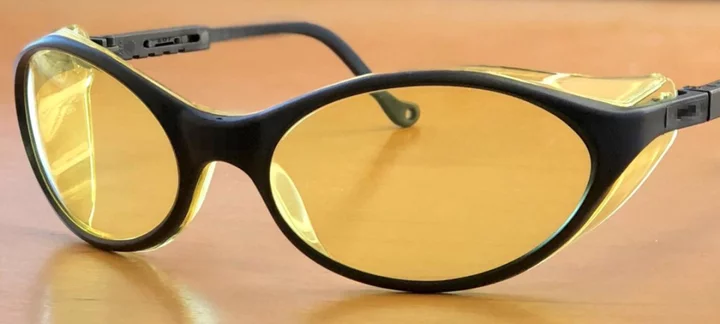
Study finds popular accessory actually likely makes ‘no difference’ to sleep quality or eye health
Special glasses marketed to filter out blue light likely do not make any difference to sleep quality or eye strain from computer use, according to a new review of studies. Blue-light blocking spectacles have been increasingly recommended, often by optometrists, since the early 2000s. Eye patients are frequently prescribed these lenses in many parts of the world with a range of marketing claims existing about their potential benefits. Some of these claims include that the special glasses may reduce eye strain associated with digital device use, improve sleep quality, and also protect the retina from light-induced damage. However, researchers, including those from the University of Melbourne in Australia, say there is “substantial debate” about whether blue-light filtering spectacle lenses have merit in ophthalmic practice. The research, published in the journal Cochrane Database of Systematic Reviews, assessed data from 17 clinical trials on the benefits offered by these glasses for improving visual performance, providing protection to the retina, and improving sleep quality. The review assessed data from individual studies from six countries, each including five to 156 participants, and the period of time over which the lenses were assessed ranging from less than one day to five weeks. Researchers found that there may be “no short-term advantages” with using blue-light filtering spectacle lenses to reduce visual fatigue associated with computer use, compared to non-blue-light filtering lenses. They say it is also currently unclear whether these lenses affect vision quality or sleep-related outcomes. The research review could also draw no conclusions about any potential effects on retinal health in the longer term. “People should be aware of these findings when deciding whether to purchase these spectacles,” study co-author Laura Downie said. “Our findings do not support the prescription of blue-light filtering lenses to the general population. These results are relevant to a broad range of stakeholders, including eye care professionals, patients, researchers and the broader community,” Dr Downie added. However, scientists said the quality and duration of the individual studies part of the review also needs to be considered. “High-quality, large clinical research studies with longer follow-up in more diverse populations are still required to ascertain more clearly the potential effects of blue-light filtering spectacle lenses on visual performance, sleep and eye health,” Sumeer Singh, another author of the study, said. The potential mechanisms by which these lenses might help with eye strain, sleep, and protecting the retina are also unclear, scientists say. “The amount of blue light our eyes receive from artificial sources, such as computer screens, is about a thousandth of what we get from natural daylight,” Dr Singh said. “Filtering out higher levels of blue light would require the lenses to have an obvious amber tint, which would have a substantial effect on colour perception,” he added. But the new research did not find any consistent reports of adverse side effects from using blue-light filtering lenses. Read More A bed bugs epidemic is sweeping the UK – this is why AI can predict Parkinson’s subtype with up to 95% accuracy, study suggests The return of schedules: How parents can make the most of back-to-school energy
2023-08-18 14:23
